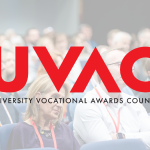“Rip-Off Degrees” – Let’s Dial Down the Rhetoric and Focus on the Facts
The Government’s recent ‘announcement’ of measures (most already in existence) to crackdown on “Rip-off” degrees and stop young people being sold a “false dream of going to university[1]” is unhelpful and the rationale for such an announcement is simplistic.
Of course no one should defend poor quality. Prospective students also need as much information and guidance as possible on the employment and salary outcomes of higher education and indeed other courses, including Apprenticeships.
Fundamentally, more learning options and greater flexibility in delivery of learning programmes for young people and adults in the workforce are needed. In this regard, Government should take pride in the growing success of Degree Apprenticeship, T Levels and plans for the Lifelong Learning/Loan Entitlement (LLE).
But Government should also value and celebrate our university sector.
Let’s look at some facts on higher education provision – According to the National Student Survey (NSS) findings presented in the Office for Students (OfS) Annual Review 2022[2]:
80% of students gave positive responses about the quality of their teaching
81% agreed that IT resources and facilities supported their learning well
69% gave positive responses on feedback and assessment
84% agreed that staff explained things well
65% agreed their course was well organised and running smoothly
71% agreed that changes in their course were communicated effectively.
The big issue for Government of course, is that according to the Institute for Fiscal Studies (IfS)[3] one fifth of graduates, approximately 70,000 per annum would be financially better off if they had not gone to university. This means 80% of graduates were financially better off as a result of going to university. Indeed the headline in the IfS press release to the study stated: “Most students get a big pay-off from going to university – but some would be better off financially if they hadn’t done a degree.”
Of course, the value of a degree programme should not solely be measured on the basis of short-term financial returns. Many occupations of significant societal value, even where higher-level skills are needed, are not well remunerated. Individuals in highly skilled occupations in the voluntary or creative sectors may be paid low entry salaries. Some professions also offer low initial starting salaries. Graduates starting their own businesses may well receive a limited income for several years. More generally, the success of higher education should be judged in terms of individual, societal as well as economic and financial terms and on a long-term rather than a short-term basis. OfS figures, often quoted, focus on outcomes such as the proportion of individuals in graduate jobs 15 months after graduating.
Higher Education verses Skills Training and Apprenticeship – Prime Minister Rishi Sunak stated; “we are taking action to crack down on rip-off university courses while boosting skills training and apprenticeship provision.” The first problem with this statement is it gives a false distinction between university provision and skills and apprenticeship provision. Universities are massive providers of skills provision – think of the training of nurses, engineers, IT specialists and a multitude of other occupations. The fastest growing part of the Apprenticeship offer is Degree Apprenticeships, where the degree is used to deliver and accredit the Apprenticeship. Degree level Apprenticeship, however, only account for 12% of Apprenticeship starts in 2021/22. We should also be aware that Apprenticeships are not without their problems, particularly at lower levels. In 2021/22 the Apprenticeship achievement rate was 53% against a Government target of 67%[4]. The completion rate for full-time undergraduate students was 89%, although the completion rate for part-time programmes was 48%[5].
Where is Productivity in the Debate? – What was particularly disappointing in the Government’s announcements was the lack of focus on the UK’s productivity gap in the debate. References to “rip-off” university courses and too many young people being sold a “false dream of going to university” don’t exactly encourage learning. The UK faces a massive productivity gap. ONS[6] reports that “The G7 countries’ average (excluding the UK) output per worker was 13% above the UK in 2019”. Key factors explaining our productivity deficit include skills gaps and shortages. Put simply, the UK needs a better educated and better trained workforce. This does, of course, mean that there is a critical need for courses to focus on the needs of the economy and employers. The debate should focus on ensuring higher education providers deliver the programmes needed by the economy and society. Prospective students also need excellent information on graduate outcomes both short and long-term. We also need to be forward thinking, for example, what type of skills will equip an individual for the challenges posed by AI over the next decade? The UK has one of best university sectors in the world; we should celebrate and build on this success.
And Social Mobility? – Recruit an applicant from an independent school, living in an affluent area, with good A levels and an higher education provider has got a safe bet. The individual will complete the course and get a graduate job. Focus on recruiting individuals from underrepresented groups in higher education from deprived areas and a university or college is taking a far bigger risk. Drop out rates will be higher and fewer individuals are likely to secure a graduate job. The Government’s pronouncements could undermine social mobility and its own levelling-up agenda.
And Let’s Not Trash Learning – Learning is important for all sorts of individual, societal and economic reasons. Let’s celebrate aspiration and the hard work and achievements of the graduate class of 2023. That includes me and my youngest daughter!
Mandy Crawford-Lee
Chief Executive
[1] Rishi Sunak, the Daily Telegraph, July 17, 2023
[2] The Office for Students Annual Review, December 15, 2022
[3] IfS, Jack Britton, Lorraine Dearden, Ben Waltmann and Laura van der Erve, February 29, 2020
[4] Quoted from FE Week, 30 March 2023
[5] The Office for Students Annual Review 2022, OfS, 15 December 2022
[6] International comparisons of UK productivity (ICP), final estimates: 2020, 20 January 2022
IN OTHER LATEST NEWS

5 days ago, Amanda Danells-Bewley

12 days ago, Amanda Danells-Bewley
NEWS BY CATEGORY
Get our latest news and events direct to your inbox - join our mailing list
Please enter your details below –


